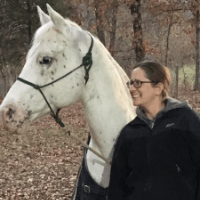Overview
In the Developmental Cognitive Affective Psychophysiology (DCAP) laboratory, we use electroencephalography (EEG) to examine the neural correlates underlying various self-regulation strategies. In our lives, moment-to-moment we apply many different self-regulatory strategies. For example, when someone flicks a cigarette butt (or other garbage) out of their car window, we might need to apply inhibitory control to prevent ourselves from honking angrily at them. At another time, we might be on a diet while grocery shopping. Keeping in mind that we are avoiding high-calorie food while shopping requires proactive control (actively maintaining the information in working memory), a very different self-regulatory strategy than inhibitory control. In order to effectively navigate our complicated lives, we need to apply many different self-regulatory strategies. In the DCAP lab, we develop or modify behavioral tasks that elicit specific self-regulation strategies. We ask participants to play these games while we collect dense-array EEG data. Data is then processed to generate specific event-related potentials (ERPs) that are related to self-regulation, such as the N2. We are interested in understanding how factors, such as emotion and aging, impact patterns of neural activation (ERPs) underlying our ability to self-regulate.
Current Projects
People in the Lab
Connie Lamm
 Dr. Connie Lamm completed her PhD at the University of Toronto in 2008. After completing her Post-Doctoral work with Drs. Nathan Fox and Danny Pine in 2012, she moved to the University of New Orleans as a tenure-track faculty. In 2016, she moved the DCAP lab to the University of Arkansas, in Fayetteville. She continues to explore the neural correlates underlying various self-regulation strategies with the goal of eventually using this method to categorize individuals showing aggressive behavior problems (across the life span) by the neural mechanisms that contribute to this behavior. On a personal level, she enjoys outdoor activities, such as riding her horse, kayaking, biking, and hiking.
Dr. Connie Lamm completed her PhD at the University of Toronto in 2008. After completing her Post-Doctoral work with Drs. Nathan Fox and Danny Pine in 2012, she moved to the University of New Orleans as a tenure-track faculty. In 2016, she moved the DCAP lab to the University of Arkansas, in Fayetteville. She continues to explore the neural correlates underlying various self-regulation strategies with the goal of eventually using this method to categorize individuals showing aggressive behavior problems (across the life span) by the neural mechanisms that contribute to this behavior. On a personal level, she enjoys outdoor activities, such as riding her horse, kayaking, biking, and hiking.
Stephanie Long
Eric Rawls
Eric is a doctoral candidate expecting to complete his degree in the summer of 2019. His research focuses on the application of EEG signal processing and computational methods, including event-related potential (ERP), time-frequency EEG analysis, single trial correlation and regression analysis, and neurophysiologically plausible single neuron and neural network modeling. His dissertation research uses EEG in combination with genetic analysis in order to examine theories linking dopamine neurotransmission and cortical brain activity to computational reinforcement learning principles. His integrative neuroscience approach combined with advanced computational methodologies may provide information about functional dynamic networks underlying human cognitive experiences, such as reinforcement learning (Rawls, Miskovic, Lee, Shirtcliff, & Lamm, under revision), emotion, and conflict (Rawls & Lamm, in preparation). When not doing brain research, he enjoys running long distances, backpack, and playing with his pet kitties.
Morgan Middlebrooks
Arooj Abid
 Arooj Abid is a Clinical Psychology PhD student with a background in probing neural correlates associated with attention and emotion. Her research interests are in behavioral and neural relationships between emotional regulation and attentional capacity as well as the implementation of cognitive training in alleviating clinical symptoms for trauma-related disorders.
Arooj Abid is a Clinical Psychology PhD student with a background in probing neural correlates associated with attention and emotion. Her research interests are in behavioral and neural relationships between emotional regulation and attentional capacity as well as the implementation of cognitive training in alleviating clinical symptoms for trauma-related disorders.
Recent Publications

